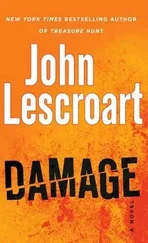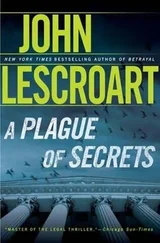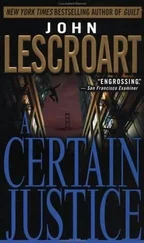John Lescroart - Son of Holmes
Здесь есть возможность читать онлайн «John Lescroart - Son of Holmes» весь текст электронной книги совершенно бесплатно (целиком полную версию без сокращений). В некоторых случаях можно слушать аудио, скачать через торрент в формате fb2 и присутствует краткое содержание. Год выпуска: 2003, ISBN: 2003, Издательство: New American Library, Жанр: Старинная литература, на русском языке. Описание произведения, (предисловие) а так же отзывы посетителей доступны на портале библиотеки ЛибКат.
- Название:Son of Holmes
- Автор:
- Издательство:New American Library
- Жанр:
- Год:2003
- ISBN:9780451208750
- Рейтинг книги:4 / 5. Голосов: 1
-
Избранное:Добавить в избранное
- Отзывы:
-
Ваша оценка:
- 80
- 1
- 2
- 3
- 4
- 5
Son of Holmes: краткое содержание, описание и аннотация
Предлагаем к чтению аннотацию, описание, краткое содержание или предисловие (зависит от того, что написал сам автор книги «Son of Holmes»). Если вы не нашли необходимую информацию о книге — напишите в комментариях, мы постараемся отыскать её.
Son of Holmes — читать онлайн бесплатно полную книгу (весь текст) целиком
Ниже представлен текст книги, разбитый по страницам. Система сохранения места последней прочитанной страницы, позволяет с удобством читать онлайн бесплатно книгу «Son of Holmes», без необходимости каждый раз заново искать на чём Вы остановились. Поставьте закладку, и сможете в любой момент перейти на страницу, на которой закончили чтение.
Интервал:
Закладка:
I’d taken the bottle of cognac and headed for La Couronne, planning to see Lupa in the morning, resolving to enlist his aid. It was not professional. It was not even . . .
That didn’t matter. I had to do something about my friend’s death. At that moment, I wasn’t a professional, and I didn’t care.
The tables at La Couronne were chained in place, but the chairs had been moved inside for the night, so I pulled up an empty fruit crate and sat by the restaurant’s front door, leaning back against the building. With my coat, I performed the futile gesture of wiping the beaded drops from the table, though it was still raining. There was a small gaslight from within, and its slight glare fell across the table. The rain was so fine that it seemed to hang in the air. There was no wind.
I hadn’t been seated more than a minute when the door behind me opened and I found myself facing Lupa.
“Monsieur Giraud, would you care to come inside where it’s dry?”
I noticed that I was, indeed, very wet, and got up and followed him into the bar. He sat on a stool and looked at me without a word until I spoke.
“I’m surprised to find you awake,” I said.
“I was thinking about your friend.”
“Yes. I wanted to speak to you about it.”
“I don’t understand,” he said, standing and going around the bar. He poured himself a beer.
“I think you do.”
He took a long draft. “Come downstairs,” he said finally. He opened the door to the kitchen, and we descended.
“May I take your coat?” he asked. “I’m sorry, sir, but I neglect my manners. I am on edge. Come, let me take your coat. Do sit down.”
We’d entered another room behind the kitchen. It was warmly lit and pleasant. Three of the walls were covered with tapestries of a cheap variety, and there were several bookshelves and assorted stuffed chairs. I took one of them.
“I live here,” he explained. “You are now my guest. Would you care for some heated milk? Coffee?”
I looked carefully at this man who had been changed so completely by the act of my coming into his living quarters. He went into some other rooms to deposit the coat, then back to the kitchen, evidently to prepare the milk. For nearly a quarter of an hour I sat while he moved back and forth, bringing first the milk, then a pair of pajamas that he insisted I change into, though they were much too large, then a warm housecoat in which I wrapped myself. He stoked the fire, and before long we were sitting comfortably in silence.
“Now,” he said after a time, “what is it that you think I understand?”
I smiled. “I am not a fool, Monsieur Lupa. I am older than you, and perhaps not as naturally gifted, but I have been in my business—perhaps I should say ‘our’ business—for over twenty years, and I have learned a few things. My efforts have been checked and checked again since coming to Valence, and I feel that yours have been likewise. I think we should work together.”
“Indeed,” he said. “I didn’t know you’d worked as a chef.” Suddenly he chuckled. “Of course, I jest. I thought it would be necessary that we work together, but I wanted to be sure of you, and certain of your superiors were less than rapturous in their recommendations.”
I bridled somewhat and spoke in clipped tones. “You may be sure of me.”
“I know that. I have been satisfied. But have you? Can you be sure of me?”
My head was swimming with cognac and fatigue, and yet I immediately perceived the import of the question. Here, indeed, was a Rubicon of sorts, and I must either cast my die with this man or count him as an enemy. There was, there could be, no middle ground.
And what, in fact, did I know of him beyond the briefs, the hearsay, the professional reports that—and no one knew this as well as I—often hid as much as they revealed?
He was an agent. Of that there was no doubt. I was reasonably sure that he didn’t work for the Germans, but could I be as certain that he was committed, as I was, to the interests of France? Before hostilities had erupted, Europe had been a checkerboard of conflicting states, and even now, with the combatants clearly defined, only a fool would suppose that the goals of England, for example, everywhere coincided with those of France. Where did Lupa stand?
I felt his eyes boring into my own as his question hung in the room, and yet he didn’t seem inclined to press. Could I be sure of him?
The answer, of course, had to be no. We were both agents at war, trained to trust no one. Hadn’t Lupa been sitting in Marcel’s seat just before he’d been poisoned? But then another thought occurred to me: it really wasn’t my decision to make. I’d been ordered to find and work with Lupa. I didn’t have to trust or respect my superiors, but as a soldier I had to obey them.
And there was another point: I had already revealed myself to the younger man. If he was not to be trusted, then my usefulness here in Valence was at an end. Now my own vulnerability, here in Lupa’s quarters, could become my own best test of his credibility. Simply put, if I were alive in the morning, he would have proven himself worthy of my confidence. It may not have been the most professional of solutions, but in my wearied state it made a great deal of sense.
One final consideration, even more unprofessional, forced itself into my consciousness. With Marcel dead, perhaps I simply needed to trust someone to fill the hole he had left. With more instinct than reason, I felt Lupa to be the man for that role.
“I have to believe in you,” I said at last. “I have no choice.”
He sipped at his beer and stared into the fire. Quite some time passed. “I suspect everyone,” he said finally.
A wave of regret over the loss of my friend passed over me. “Please,” I said. “I need your help.” He started to blur before me as fatigue set in. I put my hand over my eyes and felt his come to rest on my shoulder.
“Come,” he said, “we’ll talk in the morning.”
He took me back to his quarters, down a hall that seemed to be a dead end. He put down a mattress on the floor and brought a thick blanket for it.
“Let us be careful,” he said almost gently. We were by now speaking in the familiar. “We’re going to be needing each other.” I lay down and blew out the candle beside me. He retreated a few steps, then stopped. “Do you mind if I call you Jules?”
“No.”
“Satisfactory.” Another pause. “I am very sorry.”

I slept for seven hours. When I woke up, my clothes had been sent out and already returned, so I dressed and walked back out to the kitchen. No one was there. I went outside and found Lupa on the sidewalk finishing his beer. It was still drizzling, but the awning had been pulled.
“Did you sleep well?” he asked.
I felt miserable, so I merely grunted. He ordered me a petite calva ; and I drank it off quickly.
“Have you been awake long?” I asked.
“Since eight o’clock.” I must have looked at him in disbelief, for he continued, “A schedule that may be whimsically broken is no schedule at all. In the end the logical order one tries to impose on one’s life is sacrificed to quotidian cares. Even this beer,” he said, motioning to the brew, “though it doesn’t compare to yours, helps in its way to reestablish the order that last night destroyed.”
I thought he was being peevish, so I said nothing. He looked at me and smiled, emptying his glass. “Come with me, Jules. I have an appointment.”
We went back down to his quarters, which seemed smaller than they had been in the early morning, or even a half hour before. The hall I’d slept in was off to the left of the sitting room, but we crossed over to a door at the right and into a rather large office. The right-hand wall was covered with pots and pans, costly copper and cast iron, while the left sported a picture of Dreyfus and, somewhat incongruously, a bull’s ear. Behind the desk was another of the cheap tapestries that he used to cover the bare rock wall. His entire quarters seemed to be a type of bunker—certainly nothing like the typical cellar one finds around here.
Читать дальшеИнтервал:
Закладка:
Похожие книги на «Son of Holmes»
Представляем Вашему вниманию похожие книги на «Son of Holmes» списком для выбора. Мы отобрали схожую по названию и смыслу литературу в надежде предоставить читателям больше вариантов отыскать новые, интересные, ещё непрочитанные произведения.
Обсуждение, отзывы о книге «Son of Holmes» и просто собственные мнения читателей. Оставьте ваши комментарии, напишите, что Вы думаете о произведении, его смысле или главных героях. Укажите что конкретно понравилось, а что нет, и почему Вы так считаете.












